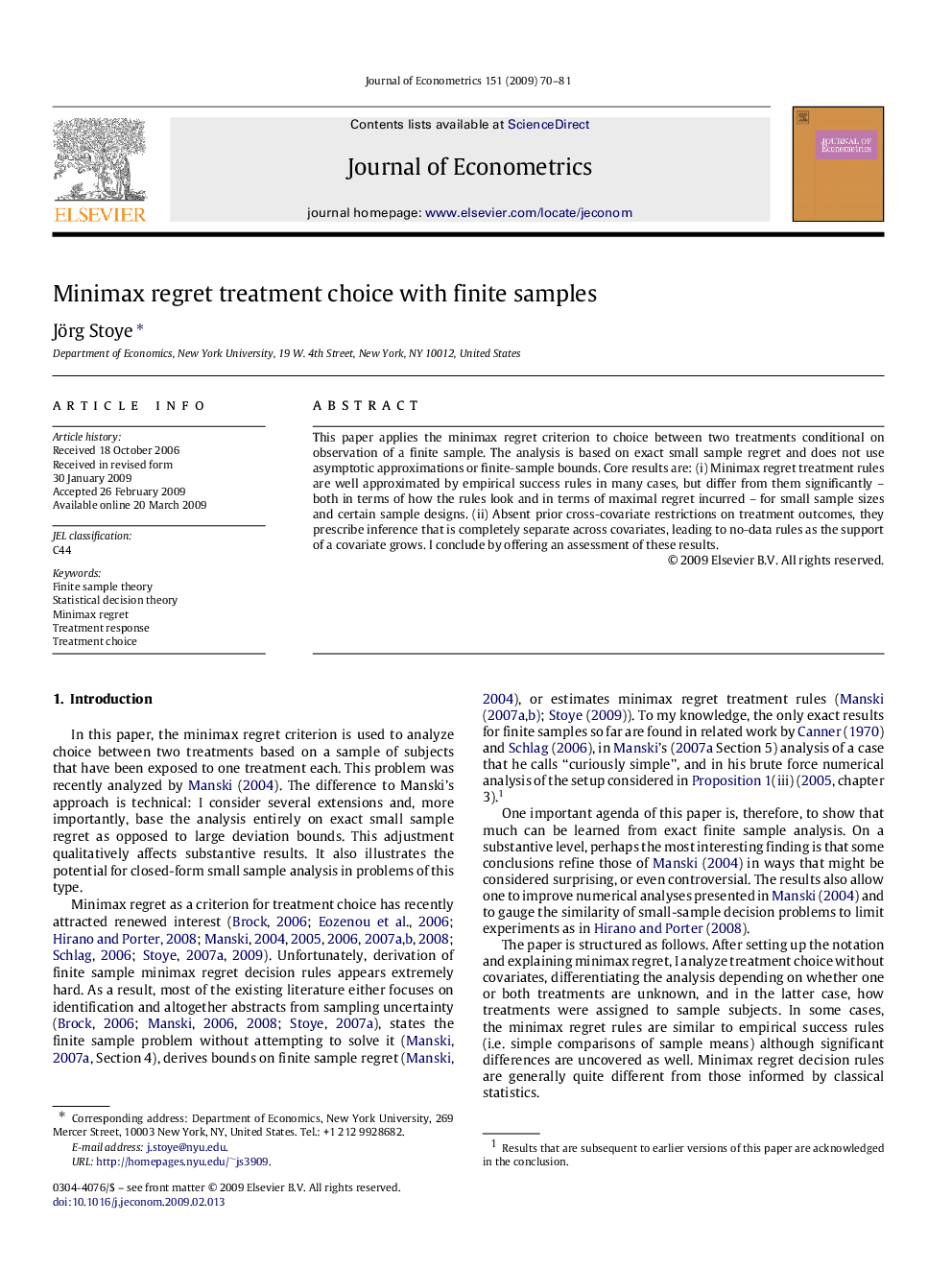| Article ID | Journal | Published Year | Pages | File Type |
|---|---|---|---|---|
| 5096949 | Journal of Econometrics | 2009 | 12 Pages |
Abstract
This paper applies the minimax regret criterion to choice between two treatments conditional on observation of a finite sample. The analysis is based on exact small sample regret and does not use asymptotic approximations or finite-sample bounds. Core results are: (i) Minimax regret treatment rules are well approximated by empirical success rules in many cases, but differ from them significantly-both in terms of how the rules look and in terms of maximal regret incurred-for small sample sizes and certain sample designs. (ii) Absent prior cross-covariate restrictions on treatment outcomes, they prescribe inference that is completely separate across covariates, leading to no-data rules as the support of a covariate grows. I conclude by offering an assessment of these results.
Related Topics
Physical Sciences and Engineering
Mathematics
Statistics and Probability
Authors
Jörg Stoye,
